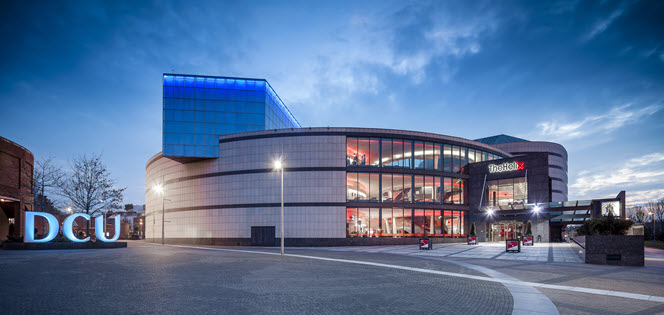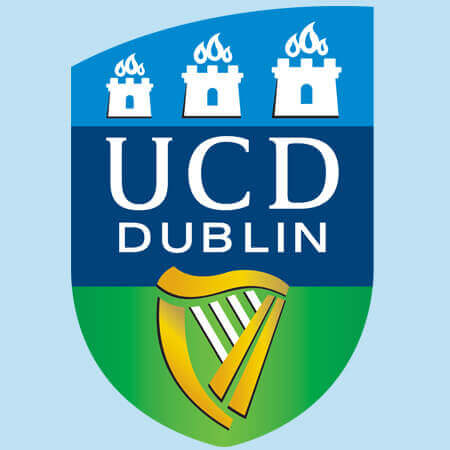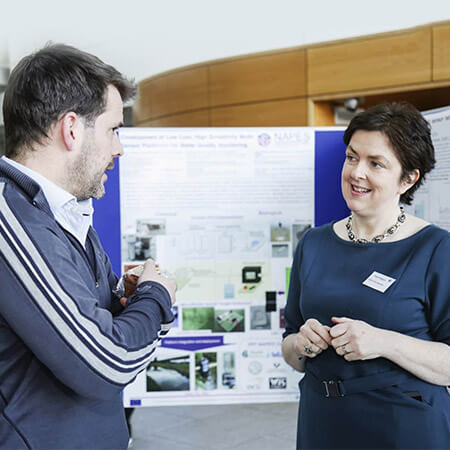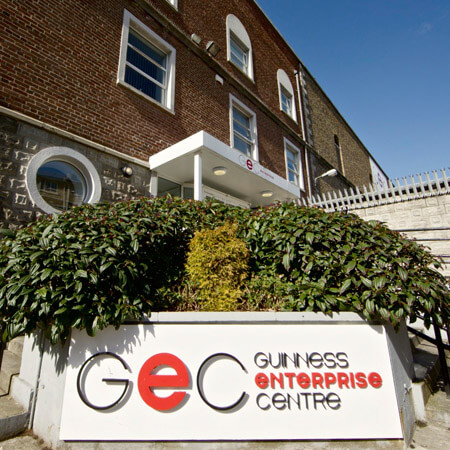Dublin is at the centre of the IoT revolution
If you’re not entirely sure what the Internet of Things is, that’s alright. Essentially, the IoT is the connection of devices to the internet. Whether it’s your washing machine or your house alarm, the idea is everything will be ‘talking’ to each other.
On a micro level, this might mean your alarm tells your coffee machine when it’s time to start brewing a pot. On a macro level, the possibilities are infinite. And researchers, academics and companies working at DCU Alpha are at the heart of its development.
What does DCU Alpha do?
Founded in 2013, DCU Alpha is a research-intensive innovation campus dedicated to the development of future technologies. It is in the vanguard of IoT developments. And, as a result, it contributes significantly to Dublin’s reputation as a global leader in the field.

Professor Brian MacCraith of DCU explains: “The concept was to create a hub of high-tech innovation in this region that would really leverage the proximity of the research-intensive university”. The main DCU campus is just 800m away.
“When we were creating DCU Alpha,” says MacCraith, “the notion was for the university to be engaging with the city’s high-tech companies. When you bring different disciplines, different specialisms and different organisations together, that’s when innovation happens best”.
DCU Alpha’s success stories
And innovation happens a lot here. DCU Alpha is currently home to over forty businesses focused on digital transformation and smart devices.
FIRE1, for instance, is a connected medical device solutions company which improves outcomes for people suffering with chronic diseases. In 2016, FIRE1 announced a €40 million investment in its DCU Alpha-based company. Then, in 2018, it again raised €40 million to develop a remote heart monitor and double its workforce here.
It creates all the right ingredients for a huge surge in innovation.
Then, there’s Novaerus – another company at DCU Alpha that’s on a medical mission. It wants to reduce indoor airborne pollutants that lead to infection, allergies, asthma and irritation.
The patented plasma technology used in its portable devices was invented in Ireland back in 2006. Since then, scientific tests at the NASA Ames laboratories in California have shown that its technology kills more bacteria in milliseconds than traditional heat sterilisation does in hours – all while using less energy than a light bulb.
Novaerus installations can now be found in thousands of hospitals, senior living facilities, schools, emergency vehicles, airports, railway stations and industrial facilities around the world.
We knew all along that we needed a state-of-the-art coworking space.
Another interesting resident at DCU Alpha is Robotify. A startup led by DCU students, its intriguing offering is robots-as-a-service. Via its robotic coding platform, children at home can control robots located in Robotify’s lab. This frees parents from buying expensive robotics kits – and then treading on them.
Recently, a major American digital education provider acquired the company for almost €20 million.
Robotify had previously worked with the European Space Agency – as did 5% of the companies at DCU Alpha. These include Enbio, Taoglas and Ubotica – which recently raised €4 million in seed funding.
The development of IoT facilities
Ronan Furlong, Executive Director of DCU Alpha, reports that the facility now features a series of proprietary systems or IoT “innovation infrastructures” to encourage and monitor its outputs.
These include “the Dolmen IoT/product design lab, the Taoglas M2M test/validation lab, VT-IoT’s Sigfox base station, a Pervasive Nation LoRa base station, the European Space Agency’s Satcom ‘makerspace’ L-Band capabilities, as well as the IoT prototyping facility”.
By providing these purpose-built facilities to Irish startups, the innovation campus hopes that they can lead the IoT revolution globally.
DCU Alpha’s Talent Garden
In 2018, there was another exciting development at DCU Alpha with the arrival of pan-European coworking and digital innovation platform Talent Garden.
Talent Garden provides the space, networks and training that communities of innovators need to thrive and flourish.
“We knew all along that we needed a state-of-the-art coworking space. Something that was quite unique and distinctive,” says MacCriath. “This is the first university collaboration that Talent Garden has ever had. With 350 spaces for digital innovators, entrepreneurs and multinationals all at this location and all in close proximity, the possibilities are endless. It creates all the right ingredients for a huge surge in innovation”.
And a coffee shop with wonderful Italian coffee, which will probably be one of the greatest catalysts for innovation!
However, Talent Garden’s Dublin facility goes way beyond coworking as it is currently understood in Ireland, according to MacCraith. It takes things to the next level with accredited digital skills training, corporate digital transformation and international connections for Irish startups looking to expand into other markets.
With that all-important connectivity in mind, opportunities for people to meet and socialise are also optimised at the DCU Alpha Talent Garden.
“That’s why there’s a restaurant here. And a coffee shop with wonderful Italian coffee, which will probably be one of the greatest catalysts for innovation!” says MacCraith.
Visit DCU Alpha’s website to find out more.



